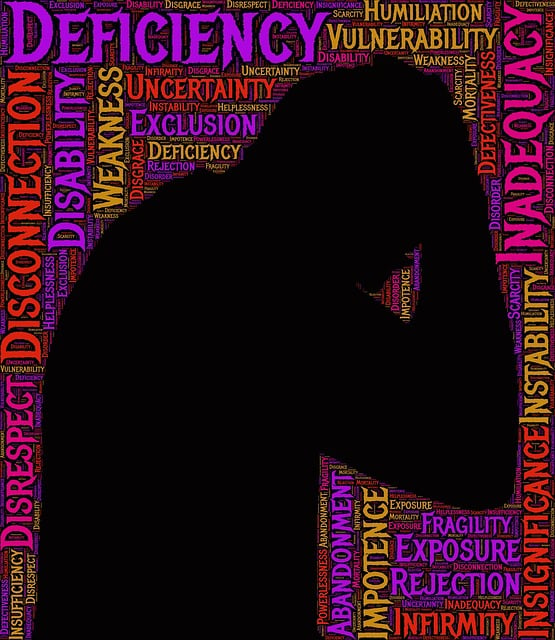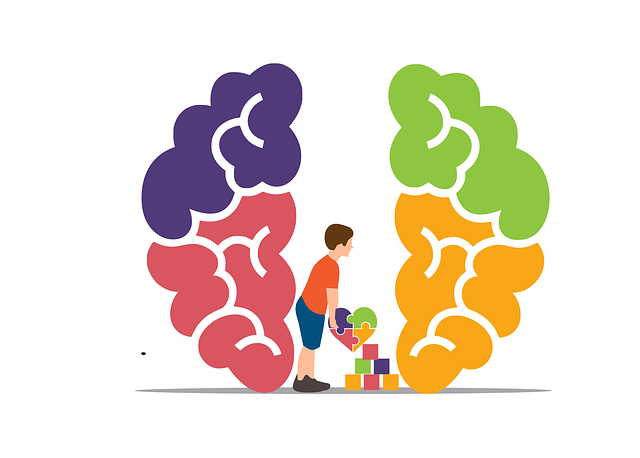Denver Psychosis Therapy leverages advanced neuroimaging, cognitive behavioral therapy, and innovative training programs to enhance mental illness diagnosis accuracy, especially in complex cases of psychosis. By combining sophisticated assessment tools with expert clinicians' skills, the program facilitates early intervention, personalized treatment, and improved patient outcomes. Comprehensive training focuses on subtle symptom recognition, cultural competency, and open communication for reduced stigma and better emotional wellness journeys. Feedback systems further elevate diagnosis precision through objective assessments, encouraging active patient participation in their mental health care.
Mental illness diagnosis accuracy is a critical aspect of patient care, yet challenges remain. This article delves into strategies aimed at enhancing diagnostic precision, addressing the complexities of mental health assessment. We explore advanced tools and techniques, the impact of clinical training, and feedback systems in therapy.
A case study on Denver Psychosis Therapy highlights innovative approaches, demonstrating improved diagnosis accuracy. By integrating these efforts, healthcare professionals can ensure more effective treatment plans, ultimately improving patient outcomes.
- Understanding the Challenges of Mental Illness Diagnosis
- The Role of Advanced Assessment Tools and Techniques
- Enhancing Clinical Training for Accurate Diagnoses
- Integrating Feedback and Validation Systems in Therapy
- Denver Psychosis Therapy: A Case Study on Improving Diagnosis Accuracy
Understanding the Challenges of Mental Illness Diagnosis

Mental illness diagnosis is a complex process, often fraught with challenges that can impact treatment outcomes. One of the primary hurdles is the vast spectrum of symptoms and their similarity across various disorders. For instance, schizophrenia and bipolar disorder may exhibit comparable behavioral changes, making accurate differentiation difficult. This complexity demands a nuanced approach in Denver psychosis therapy, where healthcare professionals must delve into an individual’s medical history, psychological assessments, and sometimes even genetic predispositions to arrive at a precise diagnosis.
Furthermore, the subjective nature of mental health experiences poses another challenge. Individuals may describe their symptoms differently, influencing the diagnostic process. Burnout prevention and self-care practices can aid in emotional regulation, enabling patients to articulate their experiences more effectively during therapy sessions. This, in turn, contributes to enhancing diagnostic accuracy, as healthcare providers gain deeper insights into managing complex cases of mental illness.
The Role of Advanced Assessment Tools and Techniques

In recent years, advancements in mental health assessment have significantly contributed to improving diagnosis accuracy. Advanced tools and techniques play a pivotal role in enhancing the clarity and reliability of mental illness evaluations. These innovations go beyond traditional methods, offering more nuanced insights into complex psychological landscapes. For instance, integrating cognitive behavioral therapy with cutting-edge neuroimaging allows professionals like Denver Psychosis Therapy specialists to identify subtle brain differences associated with specific disorders. This not only aids in early detection but also personalizes treatment plans, ensuring more effective Emotional Healing Processes.
Furthermore, incorporating Mind Over Matter Principles into assessment routines empowers individuals to actively participate in their mental health journeys. These techniques encourage self-reflection and introspection, enabling patients to contribute valuable insights that might otherwise remain undetected. Moreover, Risk Management Planning for Mental Health Professionals is enhanced by these advancements, as advanced tools provide more precise data for evaluating potential risks and developing proactive interventions.
Enhancing Clinical Training for Accurate Diagnoses

Mental illness diagnosis accuracy has long been a point of focus in healthcare, and enhancing clinical training plays a pivotal role in achieving better outcomes. The journey towards accurate diagnoses begins with equipping mental health professionals with comprehensive knowledge and practical skills. In Denver, psychosis therapy programs have been pioneering innovative training methods to address this challenge. These initiatives emphasize the importance of not just academic learning but also hands-on experience, ensuring practitioners can recognize subtle symptoms and differentiate between similar disorders effectively.
Effective communication strategies form a cornerstone of this improved training. Encouraging professionals to actively listen and foster open dialogue with patients enables them to gather more nuanced information, enhancing diagnostic precision. Additionally, integrating risk assessment techniques into the curriculum empowers clinicians to identify individuals at higher risk of mental health deterioration, allowing for timely interventions. By combining these approaches, Denver’s psychosis therapy programs aim to develop practitioners’ inner strength and clinical expertise, ultimately improving diagnosis accuracy and patient care.
Integrating Feedback and Validation Systems in Therapy

Incorporating feedback and validation systems into therapy sessions is a powerful strategy to enhance mental illness diagnosis accuracy in Denver psychosis therapy. These mechanisms allow therapists to objectively assess patient progress and adjust treatment plans accordingly. By providing patients with immediate feedback on their behaviors, thoughts, and feelings, therapists can help them gain a deeper understanding of their mental wellness journey. This, in turn, boosts confidence and encourages active participation in the therapeutic process.
Additionally, integrating these systems contributes to Mental Illness Stigma Reduction Efforts by fostering open conversations about mental health. The Mental Wellness Podcast Series Production, for instance, can utilize such feedback to create engaging content that educates listeners on various aspects of mental health, breaking down barriers and promoting understanding. This holistic approach ensures that patients not only receive accurate diagnoses but also develop the tools needed to navigate and improve their mental wellness in a supportive environment.
Denver Psychosis Therapy: A Case Study on Improving Diagnosis Accuracy

Denver Psychosis Therapy stands as a remarkable case study showcasing the potential for improving mental illness diagnosis accuracy, specifically in navigating complex cases of psychosis. This therapeutic approach emphasizes a multifaceted strategy, combining advanced assessment techniques with comprehensive training for healthcare providers. By integrating Emotional Well-being Promotion Techniques and enhancing Healthcare Provider Cultural Competency Training, the program aims to address the nuanced challenges associated with diagnosing psychotic disorders.
The initiative takes a holistic view, recognizing that accurate diagnosis requires not only clinical expertise but also an understanding of cultural factors influencing mental health experiences. Through meticulously designed Mental Health Education Programs, healthcare professionals gain insights into the diverse presentations of psychosis across different demographics. This tailored training encourages a deeper empathy and improved diagnostic skills, ultimately leading to more effective treatment planning and enhanced patient outcomes.
Mental illness diagnosis accuracy is a multifaceted issue that requires innovative solutions. By combining advanced assessment tools, enhanced clinical training, and integrated feedback systems, professionals can strive for greater precision. As evidenced by the case study on Denver Psychosis Therapy, these efforts not only improve diagnostic accuracy but also lead to more effective treatment plans. Continued research and collaboration across disciplines are essential to further refining these practices, ultimately benefiting individuals seeking mental health support.













